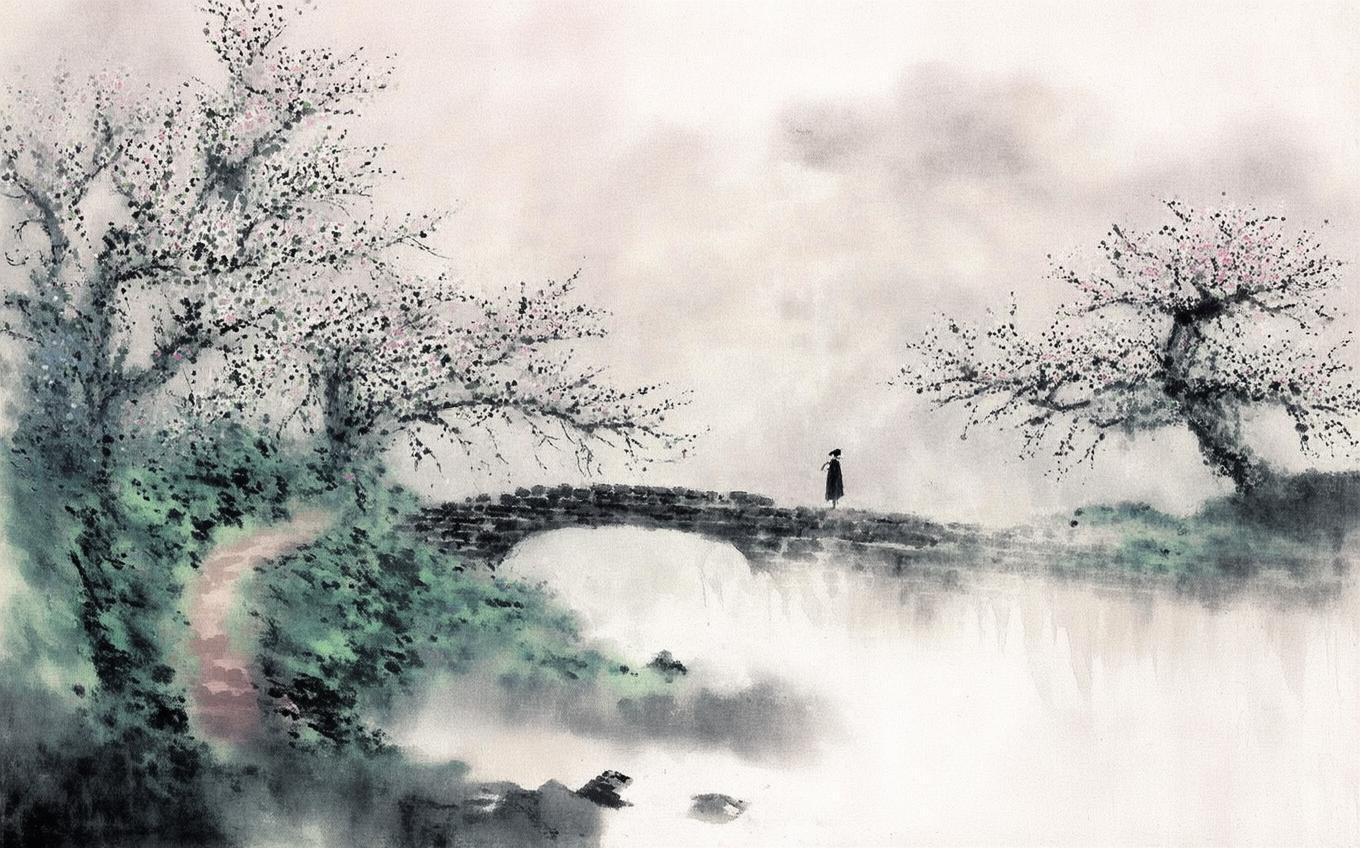Analysis of "清明" - Classical Chinese Poetry
Introduction
The poem "清明" (Qīngmíng) is one of the most famous works by the Tang Dynasty poet Du Mu (杜牧). Written during a time of political turmoil and personal reflection, it captures the essence of the Qingming Festival, a traditional Chinese holiday dedicated to honoring ancestors and reflecting on life’s fleeting nature.
Du Mu (803–852) was a prominent poet of the late Tang Dynasty, known for his lyrical and melancholic style. This poem, though brief, conveys deep emotion through vivid imagery and subtle symbolism, making it a timeless piece in Chinese literature.
The Poem: Full Text and Translation
清明时节雨纷纷
Qīngmíng shíjié yǔ fēnfēn
During Qingming Festival, the rain drizzles endlessly路上行人欲断魂
Lù shàng xíngrén yù duànhún
Travelers on the road are heartbroken with grief借问酒家何处有
Jièwèn jiǔjiā hé chù yǒu
May I ask where a tavern can be found?牧童遥指杏花村
Mùtóng yáo zhǐ xìnghuā cūn
A cowherd points to Apricot Blossom Village in the distance
Line-by-Line Analysis
-
"清明时节雨纷纷"
- The opening line sets the scene with rain falling during Qingming, a time traditionally associated with tomb-sweeping and remembrance. The "drizzling rain" (yǔ fēnfēn) symbolizes sorrow and the transient nature of life. -
"路上行人欲断魂"
- The "heartbroken traveler" (xíngrén yù duànhún) reflects the emotional weight of Qingming, where people mourn lost loved ones. The phrase duànhún (断魂) suggests a soul shattered by grief. -
"借问酒家何处有"
- The speaker seeks solace in wine, a common motif in Chinese poetry to express melancholy. The question implies a desire to escape sorrow, even temporarily. -
"牧童遥指杏花村"
- The cowherd’s gesture toward Apricot Blossom Village introduces a contrast—while the traveler is steeped in grief, nature (symbolized by the village) continues its cycle, offering a faint hope of renewal.
Themes and Symbolism
- Grief and Remembrance: The poem embodies the Qingming Festival’s spirit, where people honor the dead while contemplating mortality.
- Nature’s Role: The rain and apricot blossoms symbolize life’s impermanence—sorrow (rain) coexists with beauty (blossoms).
- Escapism vs. Acceptance: The traveler’s search for wine suggests a struggle between numbing pain and confronting loss.
Cultural Context
The Qingming Festival dates back over 2,500 years, rooted in Confucian filial piety and Daoist harmony with nature. Du Mu’s poem reflects these values:
- Filial Duty: Honoring ancestors was (and remains) a core Confucian virtue.
- Daoist Tranquility: The imagery of rain and blossoms aligns with Daoist acceptance of life’s cycles.
During the Tang Dynasty, poetry was a medium for expressing both personal and societal melancholy, as the empire faced decline. Du Mu’s work subtly critiques the era’s instability while offering universal solace in nature.
Conclusion
"清明" is a masterpiece of economy and depth, using minimal words to evoke profound emotion. Its enduring appeal lies in its universal themes—grief, the passage of time, and the solace found in nature.
For modern readers, the poem serves as a reminder of shared human experiences across cultures: the need to remember, the pain of loss, and the quiet hope that persists even in sorrow. Du Mu’s delicate balance of despair and beauty ensures "清明" remains a cornerstone of Chinese literary heritage.




Comments (0)
No comments yet. Be the first to comment!